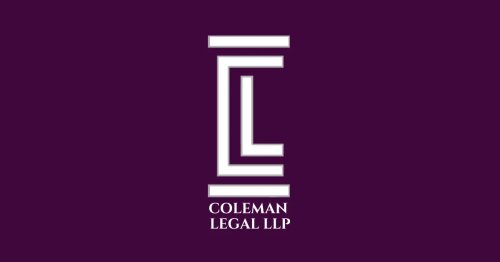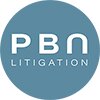Best Civil & Human Rights Lawyers in Dublin
Share your needs with us, get contacted by law firms.
Free. Takes 2 min.
List of the best lawyers in Dublin, Ireland
About Civil & Human Rights Law in Dublin, Ireland
Civil and human rights law in Dublin, Ireland, is a field of legal practice dedicated to protecting individuals' fundamental freedoms and ensuring equality. These laws aim to safeguard rights such as freedom of speech, assembly, and religion, and protect against discrimination, unfair treatment, and breaches of privacy. Ireland's civil and human rights landscape is shaped by both national legislation and international agreements, ensuring that individuals can seek justice when their rights are infringed upon.
Why You May Need a Lawyer
There are several situations where you might require legal advice in the field of civil and human rights. Common scenarios include:
- Experiencing discrimination based on race, gender, sexual orientation, or disability.
- Facing unfair treatment at work or in educational institutions.
- Violations of privacy or data protection laws.
- Issues related to freedom of expression, assembly, or association.
- Cases of unlawful detention or police misconduct.
- Problems arising from immigration and asylum processes.
- Difficulties involving access to public services or housing.
In these situations, a lawyer specializing in civil and human rights can help you understand your legal standing, guide you through complex legal processes, and represent you in court if necessary.
Local Laws Overview
Several key pieces of legislation govern civil and human rights in Dublin, Ireland, including:
- The Constitution of Ireland: The supreme law that guarantees fundamental rights such as freedom of expression, assembly, and equality before the law.
- The Equal Status Acts 2000-2015: These acts prohibit discrimination in the provision of goods and services, accommodation, and education based on characteristics such as gender, marital status, religion, age, disability, race, sexual orientation, and membership in the Traveller community.
- The Employment Equality Acts 1998-2015: These laws protect against discrimination in the workplace, promoting equality opportunities and safeguarding against harassment and victimization.
- The European Convention on Human Rights Act 2003: Incorporates the European Convention on Human Rights into Irish law, allowing individuals to seek redress for breaches of their rights under the Convention.
- The Data Protection Acts 1988-2018: These acts regulate the processing of personal data, ensuring the protection of individual privacy rights.
Frequently Asked Questions
1. What are my basic human rights under Irish law?
Under Irish law, your basic human rights include the right to life, liberty, and personal security, freedom of expression, assembly, and religion, equality before the law, and protection from discrimination and inhumane treatment.
2. What constitutes discrimination under Irish civil and human rights legislation?
Discrimination occurs when an individual is treated less favorably based on specific grounds, including gender, marital status, family status, age, disability, race, sexual orientation, religion, or membership in the Traveller community.
3. How can I challenge a violation of my civil or human rights?
You can challenge a rights violation by filing a complaint with relevant authorities, such as the Workplace Relations Commission or the Irish Human Rights and Equality Commission, seeking legal advice, or, in some cases, taking legal action in court.
4. Are there protections against discrimination at work?
Yes, the Employment Equality Acts 1998-2015 protect employees against workplace discrimination, promoting equal opportunities and prohibiting harassment, victimization, and discriminatory dismissal.
5. What should I do if I believe my privacy rights have been violated?
If you believe your privacy rights have been violated, you can file a complaint with the Data Protection Commission, seek legal advice, and, if necessary, pursue legal action to enforce your rights.
6. How can asylum seekers protect their rights in Ireland?
Asylum seekers can protect their rights by understanding the asylum process, seeking support from organizations like the Irish Refugee Council, and consulting with a lawyer specialized in immigration and asylum law.
7. Are there legal protections against hate speech in Ireland?
Yes, Irish law prohibits incitement to hatred based on characteristics like race, religion, nationality, or sexual orientation, protecting individuals from hate speech and promoting social harmony.
8. How do I report police misconduct?
To report police misconduct, you can file a complaint with the Garda Síochána Ombudsman Commission (GSOC), which is responsible for handling such complaints independently and impartially.
9. What support is available for victims of domestic violence?
Victims of domestic violence can seek support from organizations like Women's Aid and the Dublin Rape Crisis Centre, as well as apply for legal protection orders such as barring, safety, or protection orders through the courts.
10. Can non-citizens access civil and human rights protections in Ireland?
Yes, non-citizens are entitled to civil and human rights protections in Ireland, subject to certain conditions. They can seek legal advice to understand their rights and available remedies.
Additional Resources
For further information and assistance, you can contact the following organizations and bodies:
- Irish Human Rights and Equality Commission (IHREC)
- Workplace Relations Commission (WRC)
- Data Protection Commission (DPC)
- Garda Síochána Ombudsman Commission (GSOC)
- Free Legal Advice Centres (FLAC)
- Irish Refugee Council
- Women's Aid
- Dublin Rape Crisis Centre
Next Steps
If you need legal assistance in the area of civil and human rights, consider taking the following steps:
- Identify the specific issue or violation you are facing.
- Gather all relevant documentation and evidence related to your case.
- Contact a lawyer who specializes in civil and human rights law to discuss your situation and receive expert advice.
- Reach out to relevant organizations or governmental bodies for support and additional guidance.
- Be proactive in understanding your rights and the legal remedies available to you.
Seeking legal advice at an early stage can help you navigate the complexities of civil and human rights law and ensure that your rights are effectively protected.
Lawzana helps you find the best lawyers and law firms in Dublin through a curated and pre-screened list of qualified legal professionals. Our platform offers rankings and detailed profiles of attorneys and law firms, allowing you to compare based on practice areas, including Civil & Human Rights, experience, and client feedback.
Each profile includes a description of the firm's areas of practice, client reviews, team members and partners, year of establishment, spoken languages, office locations, contact information, social media presence, and any published articles or resources. Most firms on our platform speak English and are experienced in both local and international legal matters.
Get a quote from top-rated law firms in Dublin, Ireland — quickly, securely, and without unnecessary hassle.
Disclaimer:
The information provided on this page is for general informational purposes only and does not constitute legal advice. While we strive to ensure the accuracy and relevance of the content, legal information may change over time, and interpretations of the law can vary. You should always consult with a qualified legal professional for advice specific to your situation.
We disclaim all liability for actions taken or not taken based on the content of this page. If you believe any information is incorrect or outdated, please contact us, and we will review and update it where appropriate.
Browse civil & human rights law firms by service in Dublin, Ireland
Dublin, Ireland Attorneys in related practice areas.











